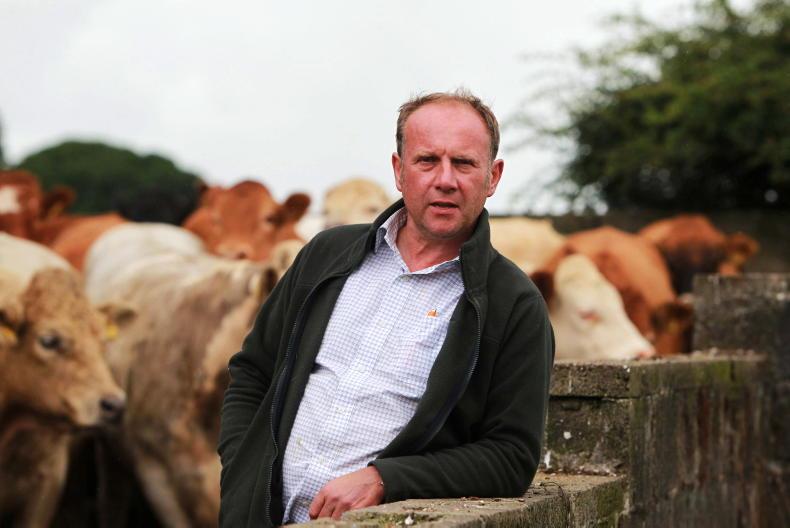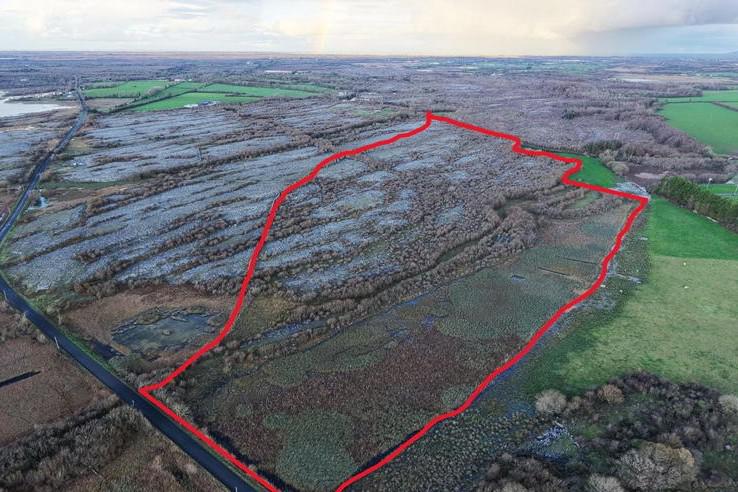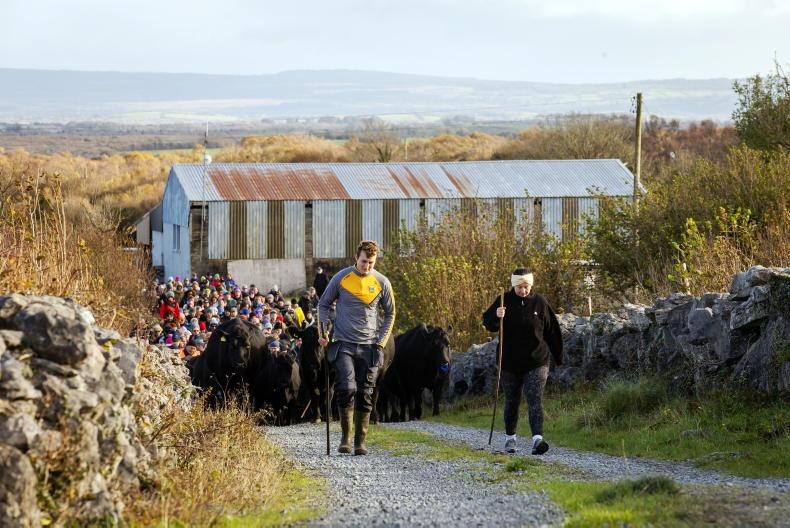“We are focused on moving to a results-based approach.”
Those were the words of European Commissioner for Agriculture and Rural Development Phil Hogan over two years ago. Since then, draft CAP proposals have signalled the direction of travel for the next policy will be away from cross-compliance penalties and towards “results-based payments”.
Such schemes are already in operation in Ireland, albeit on a smaller and more local level.
The approach was pioneered by the BurrenLIFE project, which sought to tackle declining biodiversity in one of Ireland’s most famous landscapes.
Now known as the Burren Programme, Dr Sharon Parr, one of the scientists involved, said the programme worked by defining biodiversity as a “product” and scoring farmers based on its delivery.
Speaking at the national biodiversity conference, Dr Parr said the higher the score a farmer received, the higher the payment.
There were also payments available for actions which helped to raise a farmer’s scores.
Parr said key to results-based payments was farmer buy-in and, rather than designing schemes, providing farmers with a target and letting them devise the best way to reach the target.“We have billions being spent on agri-environmental schemes but where are we?” she asked.
Schemes such as GLAS and REPS were criticised by a number of speakers, who felt they were too broad and delivered no real results.
“If we do something where we can show there is a benefit, is that not better than it just being a social security scheme?” Dr Parr asked.
Farmers are driven by economics – Bernard McKay, Co Antrim
“I farm suckler cows and sheep in the glens of Antrim.
“When I took over the farm, it was not very intensive.
“However, I followed the path laid out for me by EU support. That was down the road of increasing production.
“Farmers will follow the path that makes their farm viable. If you have properly designed schemes, farmers will latch on to them, especially if they see them as beneficial.
“That is how to make the quickest difference on biodiversity loss.
“If it’s economically viable, farmers will take it up. Given the negative margins, now is the time to make public goods an alternative income.”
MEPs call for ringfenced €15bn biodiversity fund
Members of the European Parliament’s environmental committee have voted in favour of backing proposals to ring-fence €15bn of the CAP budget to support “biodiversity objectives”.
This equates to one-quarter of the EU’s €58.82bn budget for agriculture.
The proposal came from Italy and proposed earmarking at least 30% of Pillar I payments for eco-schemes centred on climate and the environment. In Pillar II, it was proposed that 40% of the budget should be devoted to these objectives.
Subsidies
The environmental committee said that all farm subsidies must be conditional on increasing farmland dedicated to enhancing biodiversity and protecting water.
Read more
Environment: only 10% of land has optimal fertility
CAP obligations will be greatest for intensive agriculture – Creed
“We are focused on moving to a results-based approach.”
Those were the words of European Commissioner for Agriculture and Rural Development Phil Hogan over two years ago. Since then, draft CAP proposals have signalled the direction of travel for the next policy will be away from cross-compliance penalties and towards “results-based payments”.
Such schemes are already in operation in Ireland, albeit on a smaller and more local level.
The approach was pioneered by the BurrenLIFE project, which sought to tackle declining biodiversity in one of Ireland’s most famous landscapes.
Now known as the Burren Programme, Dr Sharon Parr, one of the scientists involved, said the programme worked by defining biodiversity as a “product” and scoring farmers based on its delivery.
Speaking at the national biodiversity conference, Dr Parr said the higher the score a farmer received, the higher the payment.
There were also payments available for actions which helped to raise a farmer’s scores.
Parr said key to results-based payments was farmer buy-in and, rather than designing schemes, providing farmers with a target and letting them devise the best way to reach the target.“We have billions being spent on agri-environmental schemes but where are we?” she asked.
Schemes such as GLAS and REPS were criticised by a number of speakers, who felt they were too broad and delivered no real results.
“If we do something where we can show there is a benefit, is that not better than it just being a social security scheme?” Dr Parr asked.
Farmers are driven by economics – Bernard McKay, Co Antrim
“I farm suckler cows and sheep in the glens of Antrim.
“When I took over the farm, it was not very intensive.
“However, I followed the path laid out for me by EU support. That was down the road of increasing production.
“Farmers will follow the path that makes their farm viable. If you have properly designed schemes, farmers will latch on to them, especially if they see them as beneficial.
“That is how to make the quickest difference on biodiversity loss.
“If it’s economically viable, farmers will take it up. Given the negative margins, now is the time to make public goods an alternative income.”
MEPs call for ringfenced €15bn biodiversity fund
Members of the European Parliament’s environmental committee have voted in favour of backing proposals to ring-fence €15bn of the CAP budget to support “biodiversity objectives”.
This equates to one-quarter of the EU’s €58.82bn budget for agriculture.
The proposal came from Italy and proposed earmarking at least 30% of Pillar I payments for eco-schemes centred on climate and the environment. In Pillar II, it was proposed that 40% of the budget should be devoted to these objectives.
Subsidies
The environmental committee said that all farm subsidies must be conditional on increasing farmland dedicated to enhancing biodiversity and protecting water.
Read more
Environment: only 10% of land has optimal fertility
CAP obligations will be greatest for intensive agriculture – Creed









SHARING OPTIONS